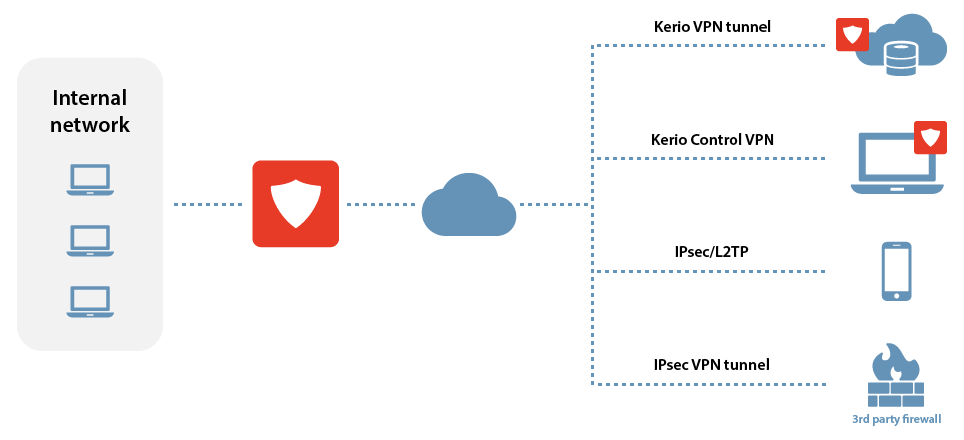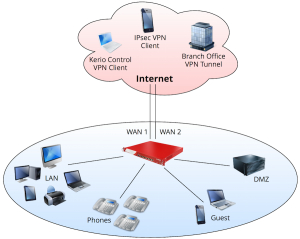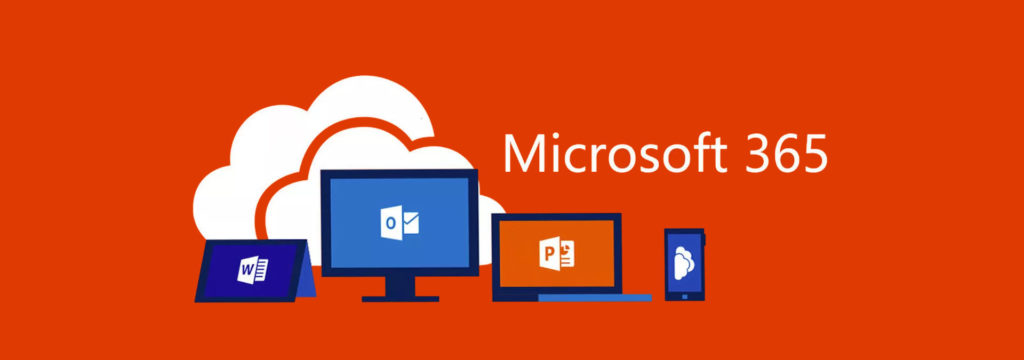All of a sudden, in response to the threat of COVID-19 infection, you’ve got a remote workforce. That means you have employees surfing the web using their own Wi-Fi networks, while also trying to connect to your company network.
You have to be sure that connection is fast and, above all, secure. That’s why companies like yours are turning to a Virtual Private Network (VPN) solution to centralize and manage remote access.
Why should I use a VPN?
Due to current situation, users and businesses rely more and more on the internet to conduct business and drive revenue. These last few months, the internet became an even more dangerous place. It’s critical that you protect your users and your business from the threats that originate from the internet.
Cases like the US Health and Human Services Department or University Hospital Brno will be seen more and more often. The number of cyber-attacks is on the rise as criminals are exploiting the fear and the urgency created by the pandemic and many public institutions are suffering the consequences.
Is a VPN really necessary and what may happen if you don’t use it?
All businesses need to adapt fast to the new market conditions. The number one thing all businesses, no matter the size, want to make sure to do is to keep business running. To adapt to the current challenges, a high number of business went remote – all employees are working now from home.
As a consequence, all employees are surfing the web using their own Wi-Fi networks. That means businesses need to make sure their employees are connected to the network FAST and securely.
What does a VPN to your network?
VPN is creating a data tunnel between the local network and any node in any location, making it seem like it is in the same place. By encrypting the data, it makes it unreadable.
When accessing company data, which is mostly confidential, businesses have to rely on a good VPN solution, that is easy to deploy and use. The office server contains proprietary information and it needs to be protected when employees are accessing it.
While there is a big offering on free VPN services, there are more and more concerns regarding their effectiveness. With a limited selection of servers, connection speeds are slower due to servers being overcrowded and last but least, there is a doubtful data protection on the logs, history and files.
10 things to check before choosing your VPN provider:
- What protocol is supported? Is it PPTP, L2TP or SSTP? It is recommendable to avoid PPTP as it is the most dated protocol, using weak encryption and having security issues. The industry standard and most often used by VPN providers is the L2TP.
- How fast is the installation process? You need to look for VPN instances that are deployable in minutes.
- How many servers does the provider has and where are they located? This is usually important when trying to access information that is restricted in some locations. Additionally, you might want to check this aspect from a network internet speed perspective. If a server is located in a doubtful place and considerably far from your location, that might speed things down for your business.
- Are other features included like DMZs segregation? Demilitarized zone (DMZ) is a special segment of the local network reserved for servers accessible from the Internet. It is not allowed to access the local network from this segment — if a server in the DMZ is attacked, it is impossible for the attacker to reach other servers and computers located in the local network.
- How many connections are allowed at the same time? You might want the provider to offer at least 2 simultaneous connections.
- Is there any failover system in place? When your internet connection is down you need to make sure business activity is not disrupted. A good VPN provider has a system failover in place to switch your connection to a secondary one until the primary one is re-established.
- What is the pricing plan? Typically, you might want to look for VPN providers that license the product per server with a minimum number of users, with possibility of extension.
- Does the VPN provider cover for mobile devices connections? Since you’re now more than ever connected to the business through the mobile, it’s highly important to be able to deploy the VPN protection there as well.
- Choose a service that specifically states that they do not keep logs, and which types they do not keep. Make sure they do not keep any kind of activity or connection log.
- Choose a VPN service that either blocks or provides new VPN-specific IPv6 address and provides an IPv6 DNS server that’s reachable only through the VPN tunnel.
Introducing Kerio Control
In just a few minutes, you can secure your client-to-site connections with Kerio’s high-performance, configuration-free VPN client—or use an industry-standard IPsec VPN client, such as those pre-loaded on mobile devices.
You can use Virtual Private Networking (VPN) to allow remote users or entire networks to access services inside the local network. Kerio Control implements IPsec for mobile device access and tunneling with third-party VPN gateways. You can also use the proprietary Kerio VPN implementation for remote access from desktop operating systems, and for tunneling to other Kerio Control firewalls.

5 main benefits of Kerio Control VPN feature are:
- Industry standard protocols are used for connectivity. Roaming users can connect to the Kerio Control network via VPN using the Kerio Control VPN Client. Alternatively, IPsec/L2TP protocol can be used for connectivity from roaming mobile devices or third-party firewalls. You can enable 2-step verification for an extra layer of security on all forms of remote access.
- The VPN feature of Kerio Control is very easy to install and use – within just a few minutes you’re able to deploy the VPN and start connecting all nodes to the network.
- Being an on-premise product, you are the sole owner of your data. Setting up Kerio Control at your site, you’re able to manage everything, including how logs are managed.
- Kerio Control is licensed as a server. The admin account and five user accounts are included in the basic license. Additional users can be added in packages of five. If you have 20 employees and you want to use the Kerio Control VPN, you’ll need the Kerio Control basic license + 15 users add-on.
- You can manage your VPN bandwidth by limiting bandwidth for data transfers or for specific services.

Three versions of Kerio Control VPN Client are available:
- Kerio Control VPN Client for Windows
- Kerio Control VPN Client for OS X
- Kerio Control VPN Client for Linux
Get started now for free
You can download Kerio Control free for 3 months from here.
Want to learn more?
All of the above and much more will be covered in our upcoming webinar sessions. Reserve your place now to discover why a fully functional VPN solution can help you stay productive during this tough period, while also protecting your network and the proprietary information shared between employees.
EMEA: 2020. April 7. 11:00AM CET – register here
US: 2020. April 7. 11:00AM PST – register here


